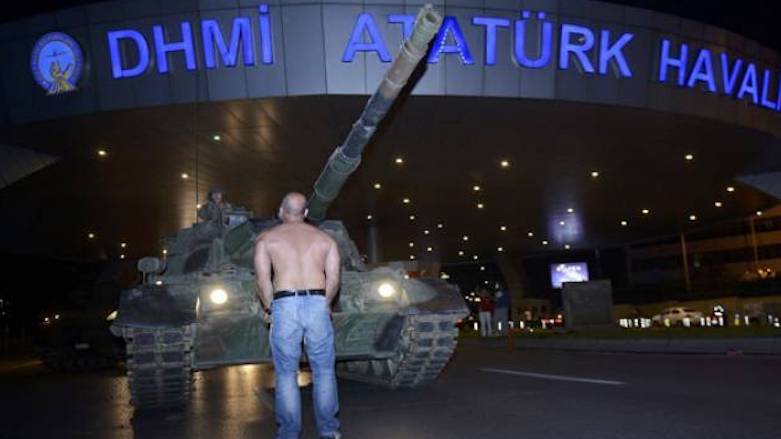Turkey looking for weapons lost during failed coup: Minister

ERBIL, Kurdistan Region (Kurdistan 24) - The government in Ankara is still searching for weapons and ammunition unaccounted for in the aftermath of the 2016 army coup attempt, Defense Minister Nurettin Canikli revealed on Sunday in response to an opposition lawmaker.
MP Yasar Tuzun of the Republican People's Party (CHP) put a parliamentary question to the Minister, asking if authorities were trying to recover lost firearms, vehicles, and equipment used in a 2016 putsch against the Turkish leadership.
In a written statement, Canikli confirmed that there were arms lost when a faction within the army rebelled to overthrow the rule of President Recep Tayyip Erdogan.
Military and civilian authorities were conducting searches and found material stockpiled across the country, he noted.
However, he gave no figures.
The failed coup killed 249 civilians who were resisting army tanks and rogue soldiers on July 15-16.
Twenty-four troops participating in the putsch were also killed by civilians or pro-government soldiers in the most violent night the country had seen in decades.
In the following days, several army units, including one that allegedly tried to assassin Erdogan, surrendered or went into hiding in barracks or mountains and forests while others fled the country.
The nation's parliament in capital Ankara came under fire, with three warplane airstrikes striking the structure and attack helicopters firing at people on the streets.
Although a new bloody phase of the Turkish-Kurdish conflict had opened up a year earlier, there was little action in the Kurdish provinces where Kurdistan Workers' Party (PKK) are waging a guerrilla-style fight against government forces.
The Erdogan administration blames the coup attempt on the movement of the US-based reclusive Turkish Islamic cleric, Fethullah Gulen, a one-time ally of the current president.
Gulen and his followers who held key positions in the bureaucracy, judiciary, police force and the army, deny the charge.
More than 50,000 people have been arrested over alleged links to the coup and Gulen in a massive country-wide crackdown under the state of emergency rules.
Over 120,000 public employees have been expelled from their jobs.
A decree signed by the president last year granted civilians who fought putschists legal impunity for violent acts.
The law also covers those who “help in the suppression of terrorist acts and events that qualify as a follow-up to the coup."
Editing by Nadia Riva
